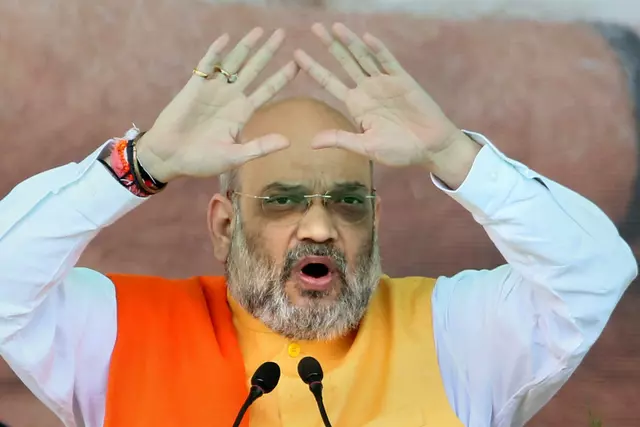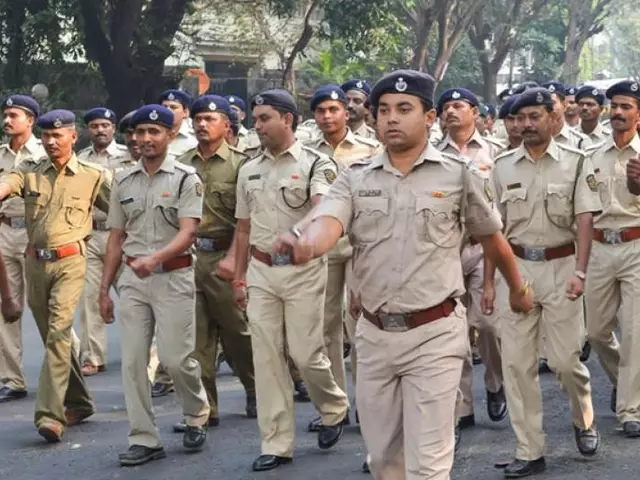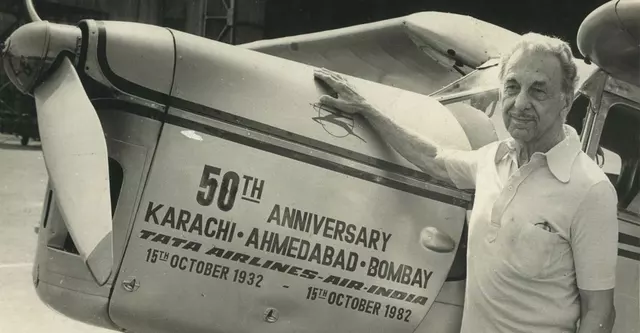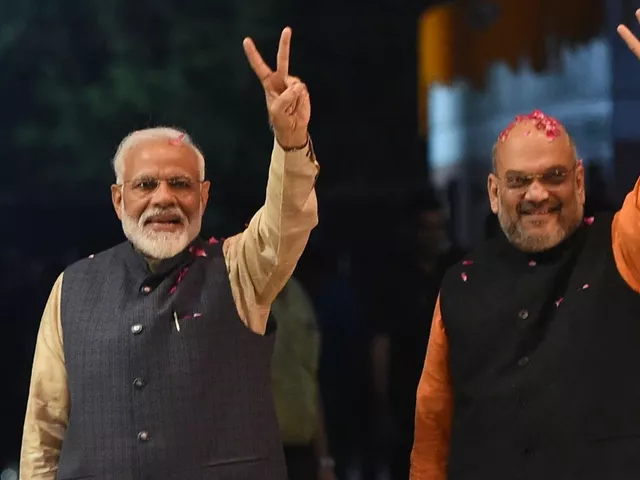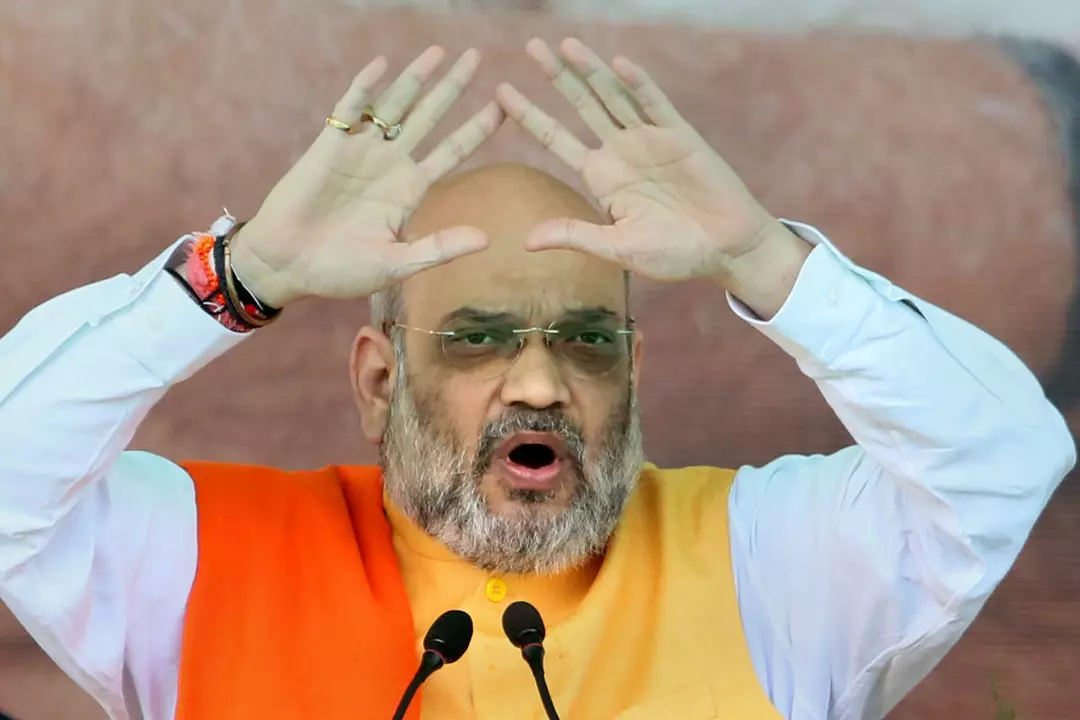 30
Apr,2023
30
Apr,2023
Amit Shah's Vision for Hindi as a Unifying Language
In his speech on Hindi Diwas 2019, Amit Shah emphasized the importance of Hindi as a unifying language for India. He believes that Hindi has the potential to bring the diverse nation together, fostering a sense of unity and common culture. In this section, I will discuss Amit Shah's vision for Hindi and why he believes it can play such a crucial role in unifying India.
As the Minister of Home Affairs, Amit Shah has a unique perspective on the challenges that India faces as a diverse nation. He sees firsthand how the many different languages spoken throughout the country can lead to misunderstandings and divisions. By promoting Hindi as a common language, he believes that these divisions can be bridged and that India can become a more cohesive nation.
Amit Shah's vision for Hindi includes promoting the language in schools and encouraging its use in official government communication. This would not only help to spread the language throughout the country but would also ensure that citizens are able to access important information in a language they understand.
In addition to his plans for promoting Hindi, Amit Shah also recognizes the importance of preserving and celebrating the many other languages spoken throughout India. He sees the celebration of Hindi Diwas as an opportunity to showcase the linguistic diversity of the country and to encourage the appreciation of all languages.
Ultimately, Amit Shah's vision for Hindi as a unifying language is rooted in his belief in the power of language to bring people together. By promoting Hindi as a common language, he hopes to strengthen the bonds between the people of India and create a stronger, more unified nation.
Reactions to Amit Shah's Speech on Hindi Diwas
As expected, Amit Shah's speech on Hindi Diwas 2019 generated a wide range of reactions from the public. Some people were supportive of his vision, expressing their belief that Hindi could indeed serve as a unifying language for India. Others, however, were more critical, arguing that promoting Hindi as a common language could lead to the marginalization of other languages and cultures.
Many of the supporters of Amit Shah's vision for Hindi pointed to the practical benefits of having a common language. They argued that a shared language would make communication easier, foster a sense of national identity, and even boost the economy by making it easier to conduct business across the country.
Critics of Amit Shah's speech, on the other hand, worried about the potential negative consequences of promoting Hindi as a unifying language. They expressed concern that the focus on Hindi could lead to the neglect of other languages, some of which are already endangered. Additionally, they pointed to the potential for linguistic imperialism, where the promotion of Hindi could lead to the suppression of other cultures and identities.
In response to these concerns, Amit Shah has emphasized that his vision for Hindi does not involve replacing other languages or erasing cultural differences. Instead, he envisions a future where Hindi serves as a bridge between the diverse communities of India, while still celebrating and preserving the country's linguistic diversity.
The History and Significance of Hindi Diwas
Hindi Diwas is celebrated every year on September 14th to mark the day in 1949 when the Constituent Assembly of India adopted Hindi as one of the official languages of the country. Since then, the celebration has grown in importance and is now observed throughout India as a way to promote and celebrate the Hindi language.
The history of Hindi Diwas dates back to the early years of Indian independence when the newly-formed nation was grappling with the challenge of creating a unified national identity. Amidst the linguistic and cultural diversity of India, Hindi was chosen as an official language because of its widespread use and its historical and cultural significance.
Over the years, Hindi Diwas has evolved from a simple observance of the language's official status to a broader celebration of Hindi and its role in Indian society. Today, the day is marked by a variety of events, including poetry readings, debates, and cultural performances that showcase the richness and versatility of the Hindi language.
For many Indians, Hindi Diwas is an opportunity to express their pride in their language and to reaffirm their commitment to preserving and promoting it. The day serves as a reminder of the importance of Hindi as a unifying force in India and the role it plays in the country's cultural and linguistic heritage.
India's Linguistic Diversity: Challenges and Opportunities
India is a country of incredible linguistic diversity, with more than 1,500 languages spoken across its vast territory. This diversity presents both challenges and opportunities for the nation as it seeks to create a unified identity and promote economic and social development.
One of the key challenges of India's linguistic diversity is the potential for communication barriers between different regions and communities. With so many languages spoken throughout the country, it can be difficult for people from different backgrounds to understand one another and to access important information and services.
However, India's linguistic diversity can also be seen as a source of strength and cultural richness. The wide range of languages spoken in the country reflects its diverse history and the many different communities that call India home. By celebrating and preserving this diversity, India can showcase its unique heritage and foster a sense of national pride.
In this context, the promotion of Hindi as a unifying language takes on added significance. By encouraging the use of Hindi as a common language, India can help to bridge the gaps between different communities while still celebrating and preserving its rich linguistic diversity.
Looking Forward: The Future of Hindi in India
As India continues to grow and develop, the role of Hindi as a unifying language will undoubtedly remain a topic of debate and discussion. The future of Hindi in India will depend on a variety of factors, including government policies, educational initiatives, and the attitudes of the Indian people themselves.
In order to ensure that Hindi continues to play a unifying role in India, it will be important for the government to invest in language education and promotion. This includes supporting Hindi language instruction in schools, as well as encouraging the use of Hindi in official communication and public life.
At the same time, it will be crucial for India to continue celebrating and preserving its linguistic diversity. This means supporting the many different languages spoken throughout the country and ensuring that they are not marginalized or neglected in the pursuit of a common language.
Ultimately, the future of Hindi in India will depend on the ability of the country to strike a balance between promoting a unifying language and celebrating its linguistic diversity. By doing so, India can continue to foster a sense of national identity and unity while also showcasing its rich cultural and linguistic heritage.

